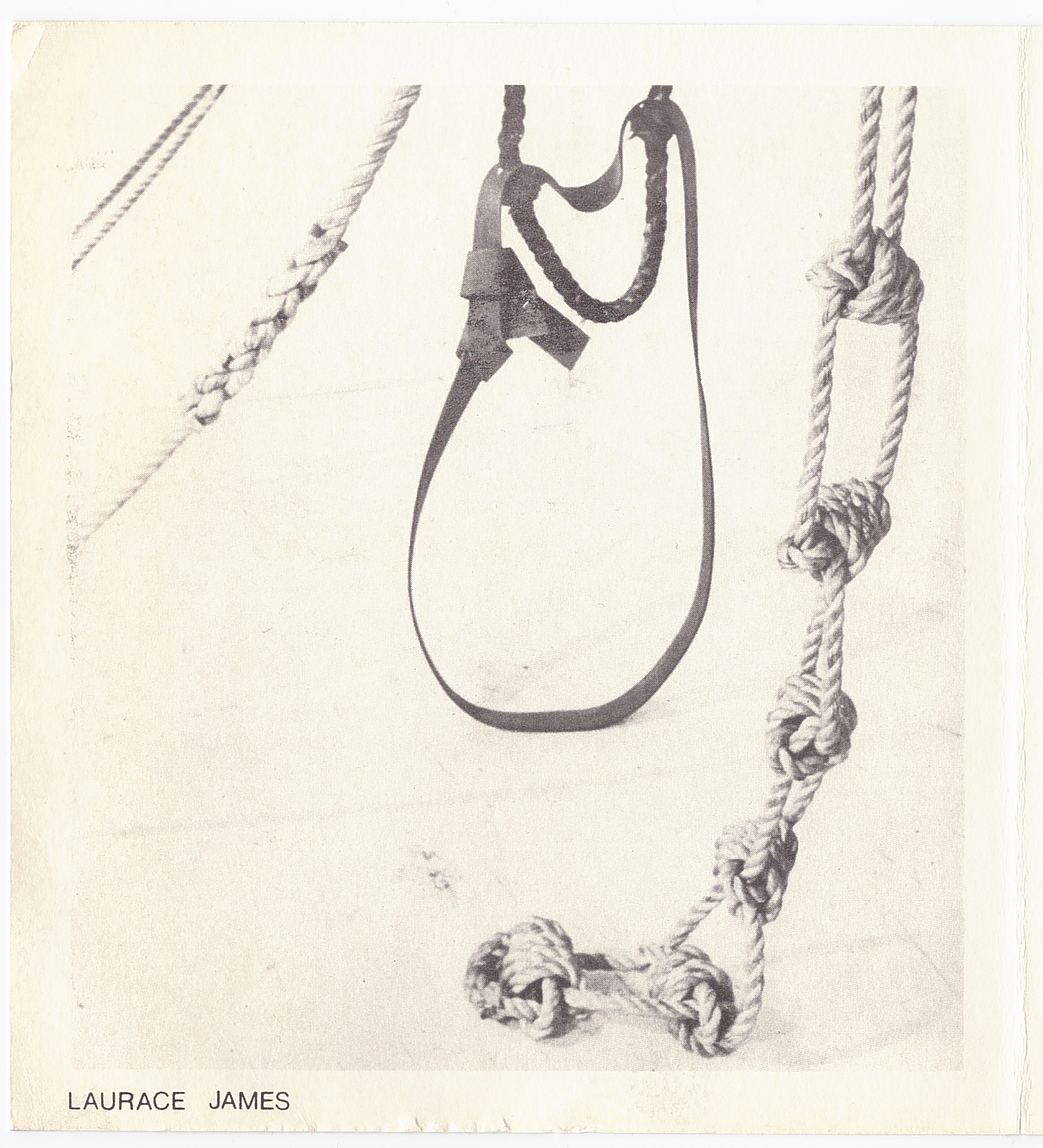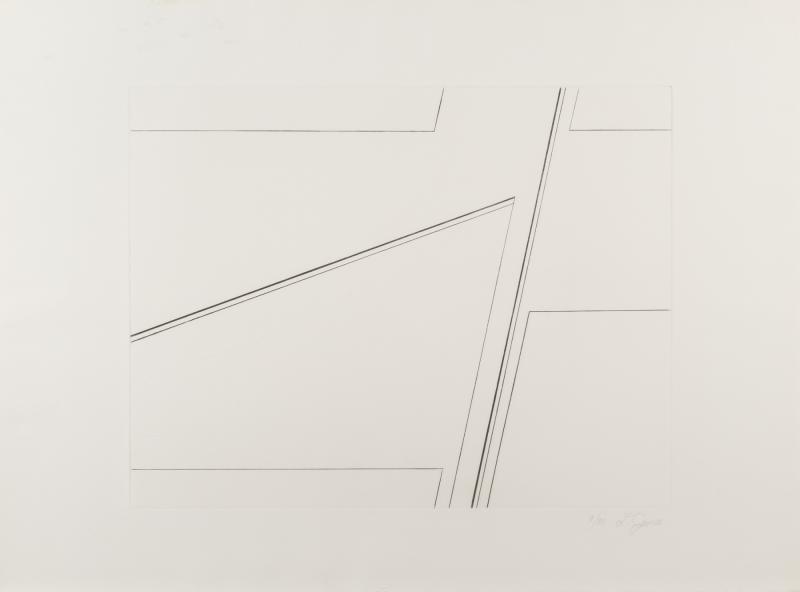“I began to feel confined by the remoteness of the painted image and static limits of the stretcher and started making sculpture that involved the viewer in arranging the elements of the object within a set framework. To use a musical analogy, my sculpture is composing, while the painting is performing.”
Laurace James’ uniquely built wooden structures seem to carry the intent of exploring of space and materiality through their strange forms. However closer examination reveals less of an interest in appearances, and more of a fascination with kinetics and imagined movements. James got an opportunity to explore this fascination at a solo show with A.I.R. in 1979, during which the artist exhibited a series of constructs that evoked a tension created via the anticipation of motion. Each piece consisted of an assembly of smaller pieces that depended on a series or cords, hooks, or hinges for stability. Looking at them for a long period of time, one cannot help but imagine the gestures each structure could make, should the mechanisms holding each form in place be loosened and played with. In fact, James did allow the audience the option of play through pieces such as as 4 x 4 x 4 (Four Variations) and 4 x 4 x 4 (36 Variations). In both, the audience is given the option of creating symmetries via the pulling of ropes that initiate a stable back and forth motion, as well as the ability to observe the variance created through the manipulation of the moveable parts. James fostered a relationship with her audience by encouraging viewers to look through rather than at her work, thus taking a unique approach to enriching the experience of the art object within the gallery space.
Laurace James received her Bachelors in Fine Arts from Antioch College in Yellow Springs Ohio in 1959. She continued her studies as an apprentice at the Mazzoni Bronze Casting Foundary in 1960, and as a researcher on Solid Geometries and Synergetics at the New School for Social Research in 1976. James’s skills were apparent, not just in her art but in the work that she did for A.I.R. gallery as well; she, along with Patsy Norvell used her experience in carpentry to help build walls and configure the electric wiring for the space. Her technical ability earned her a grant from the Institute of Art and Urban Resources to build a temporary playground in Crown Heights, Brooklyn in 1972, along with several other awards for her sculpture. James lived and worked primarily in New York and showed extensively across the United States.
member 1972-79 | b. 1936 | New York, NY
+ Exhibitions
+ Selected Press
+ Publications
+ Public Collections
+ Website



